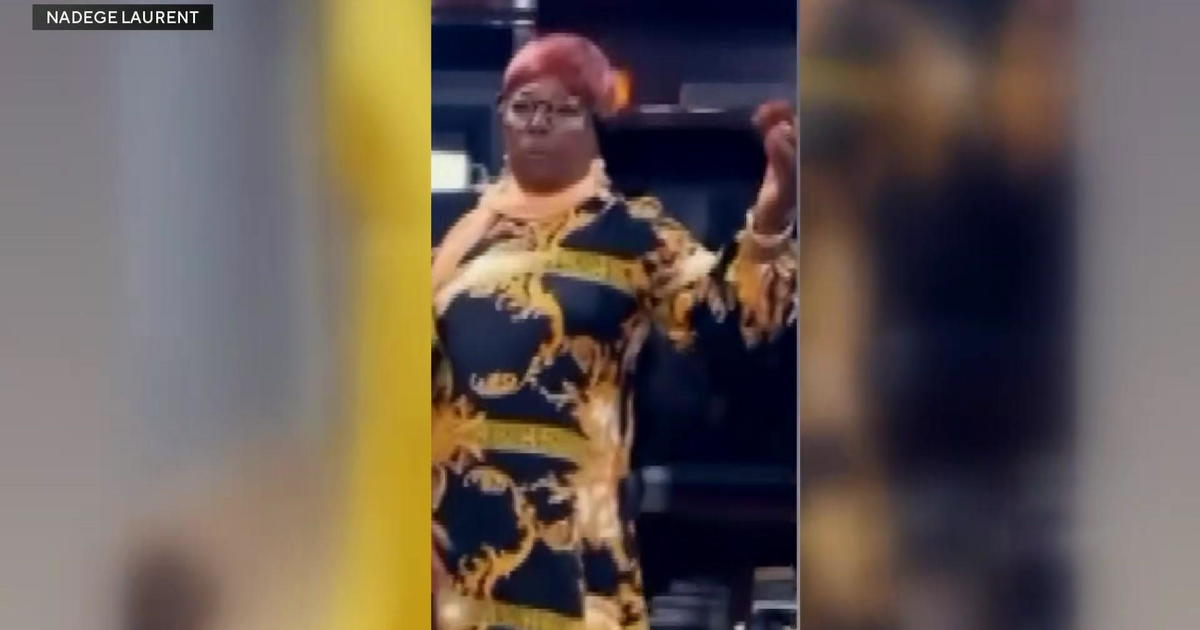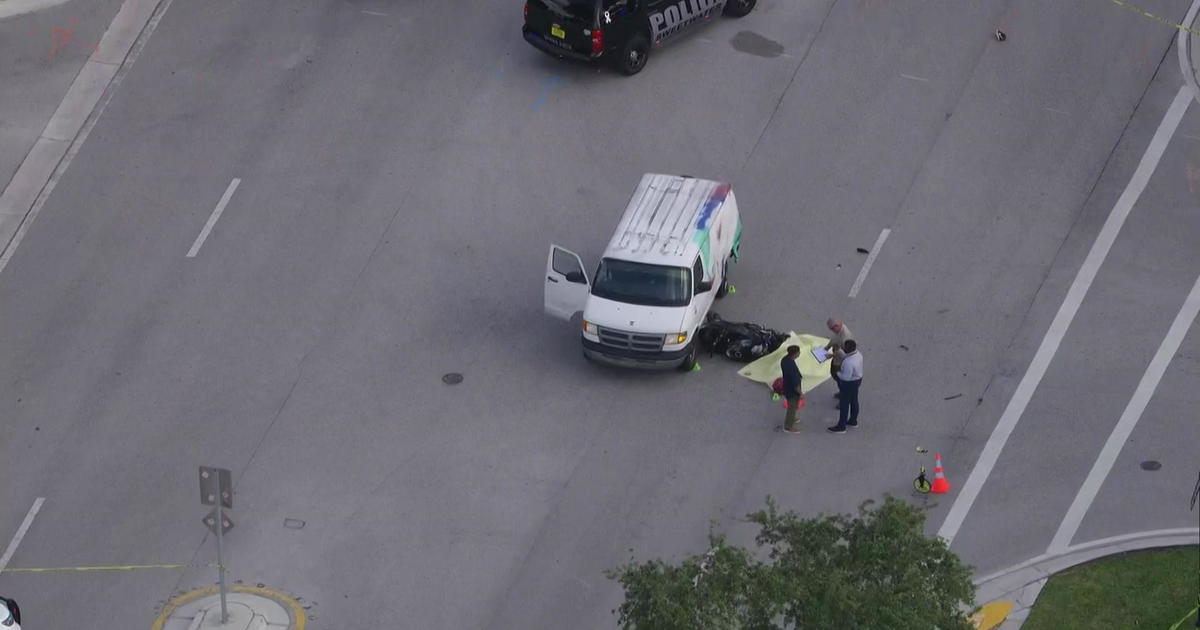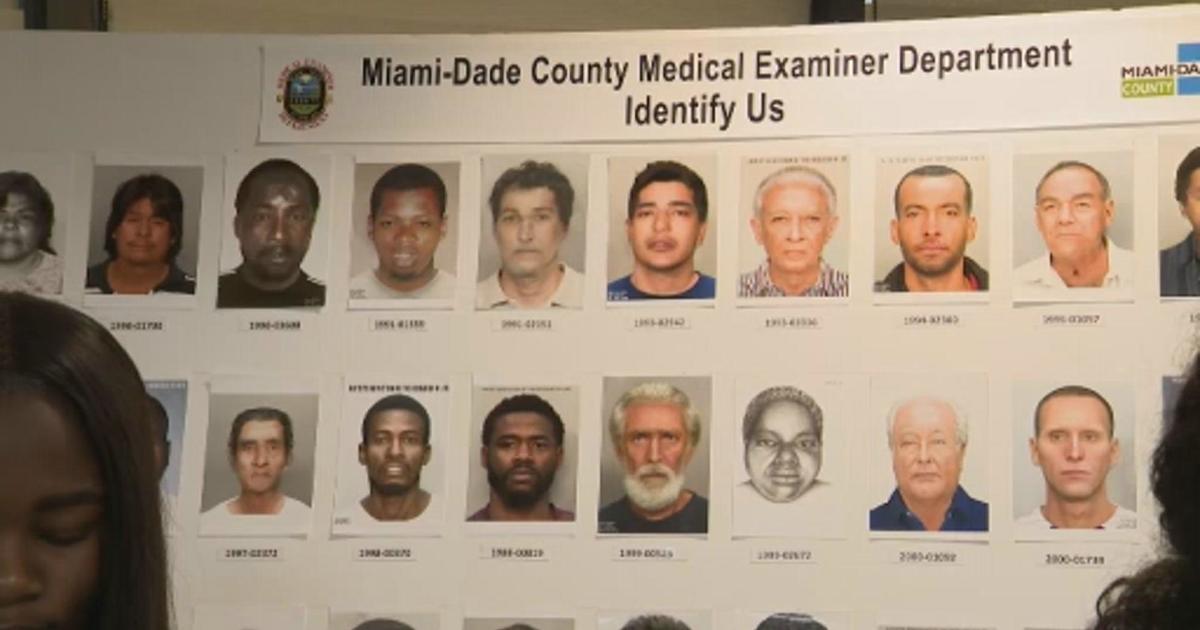Unmanned Drones Now Patrolling South Florida Skies
MIAMI (CBS4) - When you hear the word 'drone' you probably think about a small unmanned military airplane flying over a battlefield that are often used overseas to do surveillance and drop missiles; but did you know that these drones have been in your backyard for years?
Miami-Dade Police invited CBS4's David Sutta to see the machines that have been used to watch South Floridians.
In a field on the edge of the Everglades, Miami-Dade Police's Special Response team prepared as if they were going to war. Officers pulled out assault rifles and loaded up on something that resembled a tank.
"We had an armed homicide subject that was fleeing from police. He stopped the vehicle and took off running," Lieutenant Aviel Sanchez told us.
The whole thing is an exercise, but from the ground it looks very real. Police launch their helicopter to search from above; heavily armed cops, K9 unites, even bomb squad robots swarm the area. They surrounded an abandoned building and yelled "Come out! Hands up!" and then you hear something on the horizon.
It wasn't the helicopter but some sort of machine the size of a wet dry vacuum and hovered right above the ground, like a scene out of the Hollywood box office hit series The Terminator. The machine flying overhead is a drone.
Miami-Dade has two of them and cops call them the flying lawnmowers, the name came from the noise they produce.
"Flying at 300 feet over head you're gonna know we are there. This thing is not sneaking up on you," Lieutenant Sanchez explained.
Maybe not; drones have been in Miami for four years and most people don't know about them. "We were one of the first departments to be actually training with the drone," said Sanchez.
Just how are police using them? Is big brother watching your every move?
"No. Our drone program is strictly for emergency type situations," said Sanchez.
The cops are bound by just an internal policy: To fly drones within active crime scenes.
"It's not flying over the city randomly looking for stuff to see what we can see," said Sgt. Andrew Cohen from Miami-Dade's aviation unit. Much of that has to do with the FAA and ground rules they set.
"We are not able to fly at night," said Sanchez. "We are not able to fly at a greater altitude of 300 feet or at a longer distance of line of sight."
The drone carries a camera on board and can travel and transmit for miles. A pilot uses a pen to fly from a laptop program and commanders can feed live video from virtually anywhere where they can feed live video of what the drone sees.
"It allows the commanders to make decision from a distance," said Sanchez.
What distinguishes a drone from a helicopter is that a drone can be brought down to eye level. It could peer inside a building, perhaps a window or door and see if someone has barricaded themselves inside. It can also be sent to a disaster without putting a single person in danger.
The model drone being used by Miami-Dade helped in the response to Japan's nuclear reactor slammed by a tsunami in 2011. The drone flew over radioactive air space transmitting the extent of the damage. It's a concept that has more and more agencies across the country considering drones instead of $4 million dollar helicopters. Sanchez explained the drone is much cheaper to operate too.
"You're looking at a gallon of fuel versus $500 of fuel flying the helicopter around," said Sanchez.
The size is also a beneficial, especially for rural law enforcement agencies. "It can easily fit in the back of a car or trunk," said Cohen. "If you needed an aviation asset, you can maybe 5-10 minutes have something, aerials providing your views."
Some believe one day this machine may take the place of a road cop.
"I think in the future you would see these types of aircraft's probably doing routine patrols over certain areas. It may start out with the borders, an area where it's not very complex but after that I think you'll see them flying over large metro areas doing patrol," said Cohen. "Now whether I agree with that or not it doesn't matter."
Howard Simon, the executive director of Miami-Dade's American Civil Liberties Union, is equally concerned.
"What's to prevent the drones from being used to record what goes on in people's backyard?" said Simon. "Send back these images being recorded? Sent to other people? 'Hey Joe, have you seen this? We saw it in this person's backyard.'"
What would be the result of the drone spotting something illegal in a person's yard that yard? It's actually uncharted territory.
"I want to say the Miami-Dade Commission is asleep at the switch by authorizing the use of drones without also enacting restrictions that protect the rights of people of Miami-Dade County from abuses," said Cohen. "I think it all boils down to who's using it and what they are using it for. Who's the holder, the key-holder of the information that it gathers."
In April, Florida became one of the first states in the country to pass a law regulating drones. Police now need a warrant to fly one or someone's life must be in danger. It's just the beginning of drone laws.
Prices of these machines are also dropping, you can get one for a few hundred dollars. Which means anyone, complete strangers could one day be spying on you with one.



